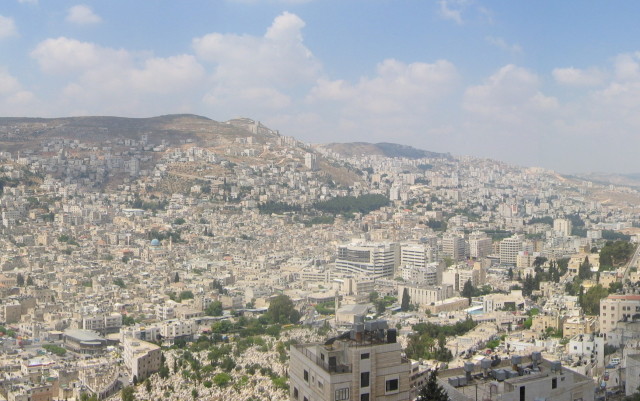
Readers of Haley Gray’s April 14, 2016 “Boulder-Nablus Sister City Project heads back to council” might have been surprised when just four days later the matter was removed from Boulder City Council’s April 19th agenda. Gray reported that although 2013 opposition to the proposal caused the Boulder City Council hearing to “drag on for more than five hours” — “this time around might be different.” Still, in removing it from the agenda, City Council passed a resolution for a “facilitated discussion” with a budget of $10,000.
Boulder City Council members might also have believed that the “hundreds of hours” the Boulder Nablus Sister City Project (BNSCP) cited in its new application devoted to opponent outreach and engagement, had indeed tempered if not completely dissipated the opposition. Indeed Boulder’s City Council Subcommittee on Sister Cities (councilmembers Lisa Morzel, Mary Young and Jan Burton) had endorsed moving the application to a full Council vote, which in municipal government practice is essentially a recommendation to pass the application as it met established criteria.
Media coverage seemed to portray BNSCP Board Chair Essrea Cherin and City Council members caught by complete surprise despite the 2013 track record and a late surge of opponent emails, phone calls, requests for meetings and letters to the editor. From my perspective though, everyone’s surprise and reaction, jerking the matter off Council’s agenda at the 11th hour illustrates a phenomenon I label, “listening through a prism.”
Just as light entering a prism becomes refracted and distorted, words uttered by opponents of Boulder-Nablus Sister City are heard on the basis of the listener’s prism of experience and beliefs. Board chair Cherin said recently that her main motivation in promoting Nablus, “is primarily because of my own journey, in terms of having spent time in Palestine and recognizing that the people of Palestine are portrayed quite the opposite of how they are in real life, in mainstream media … the people of the United States need to have opportunities to get to know Palestinians.”
Yet, Cherin claimed she was really “taken aback” that opponents “did not shift their views very much” when the application was reintroduced this year. Opponents still believe that BNSCP has political motives.
At Boulder City Council’s Sister City Subcommittee meeting on Feb. 12, 2016, she was closely questioned about her expectations of opposition to the most recent proposal. She persuaded the subcommittee that other than a few “conservative Jews” most of the 2013 opponents were now on board. In fact, the three councilmembers and BNSCP engaged in an extensive discussion on “getting Rabbis” to write letters testifying in favor of passing the application.
Councilmembers Morzel, Young and Burton also seemed to be listening through a prism at the Feb. 12 subcommittee meeting. Just prior to calling the BNSCP representatives into the room, and after reviewing the new application with City staff, each councilmember declared their support for moving the application forward.
Despite Cherin’s assurances, 10 local Boulder-area rabbis co-signed an April email to Council expressing unanimous opposition. They opposed the establishment of Nablus as Boulder’s Sister City, “on grounds that there have not been real and meaningful attempts to reach out and develop partnerships with leaders of Boulder’s Jewish community.”
Cherin in subcommittee testimony had cited by name, a local rabbi (one of the 10 who subsequently co-signed the email) as a supporter who might indeed testify in person if City Council held another public hearing. A case of listening through the prism?
An even more egregious example of this phenomenon is the description councilmembers Morzel and Young used in describing the tone/content of opposition communications and public comments. Opponents have presented several very detailed points of contention and concern with the request to formalize BNSCP’s current people-to-people programs in Nablus. They and I for example, have identified a concern that terrorist acts committed by Palestinians targeting Israeli civilians have been acclaimed at a Nablus university and in Nablus public squares. Disturbingly however, opponents were referred to resorting to “hate speech” and “racism” by Morzel and Young.
My experience with this issue and my own outreach efforts tell me though, what concerned citizens of Boulder now need are opportunities to listen to each other while recognizing we all possess that prism of experience and personal beliefs. Continuing to force this proposal through in this divisive atmosphere is a terrible basis to begin a new Sister City relationship. And despite the good will of Boulder City Council, this shouldn’t require city funding to facilitate. We should be able to set an example of respectful listening which recognizes our common humanity as we move forward.
Ken Toltz lives in Boulder, studied and lived in Israel via the CU-Boulder International Education program.














